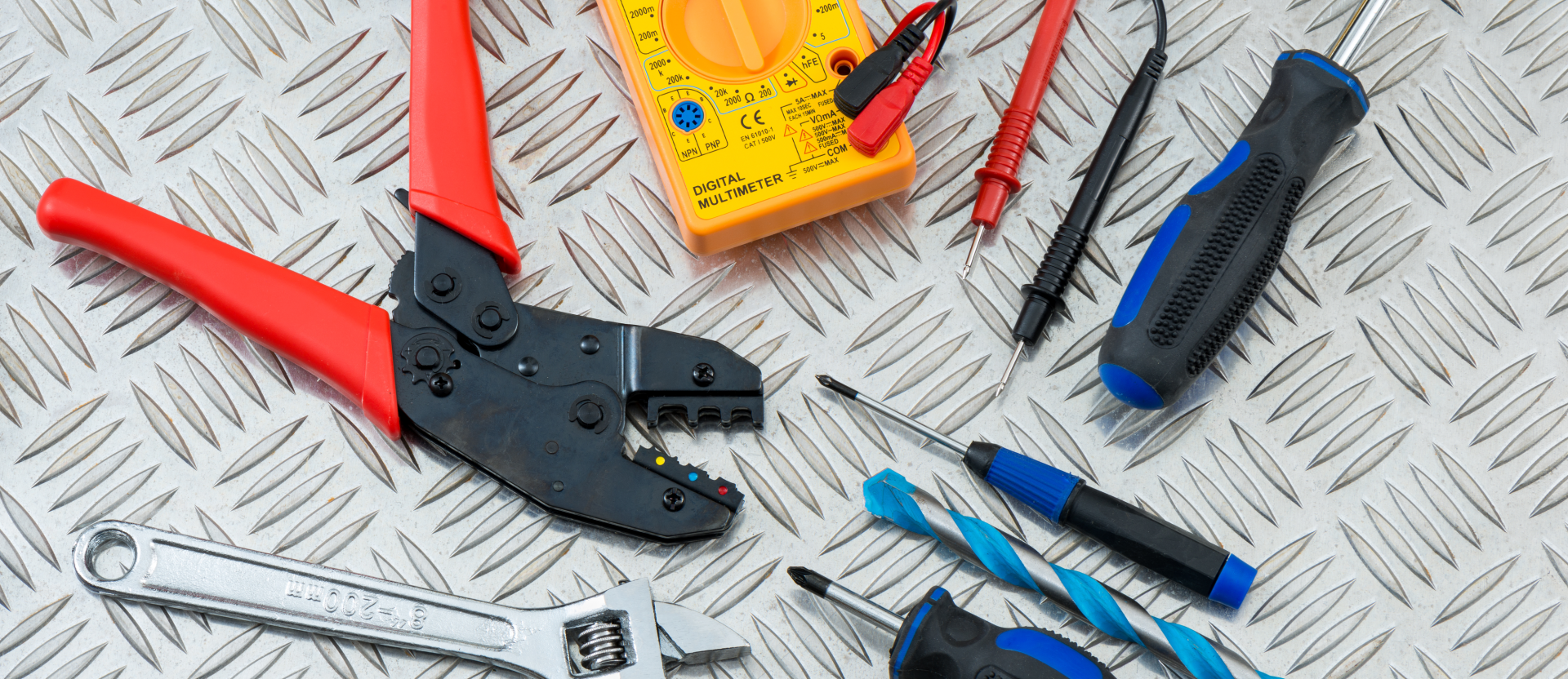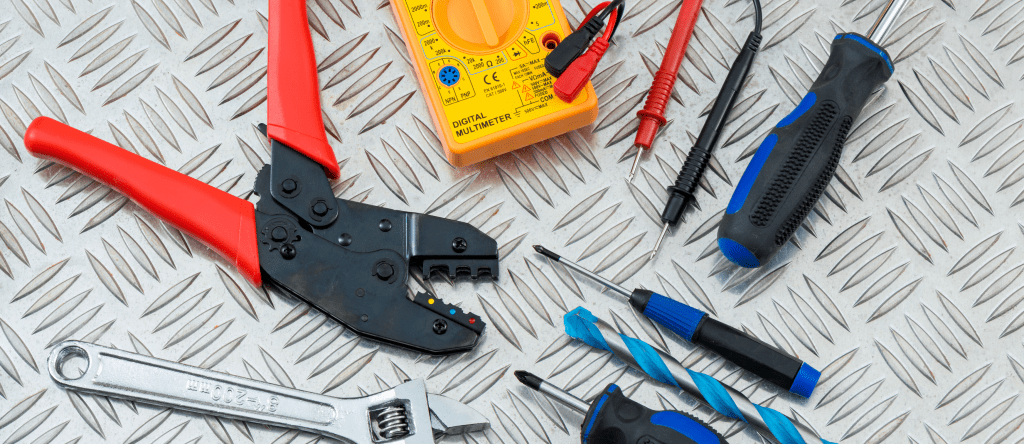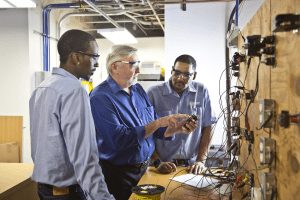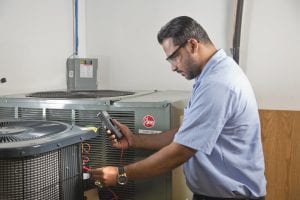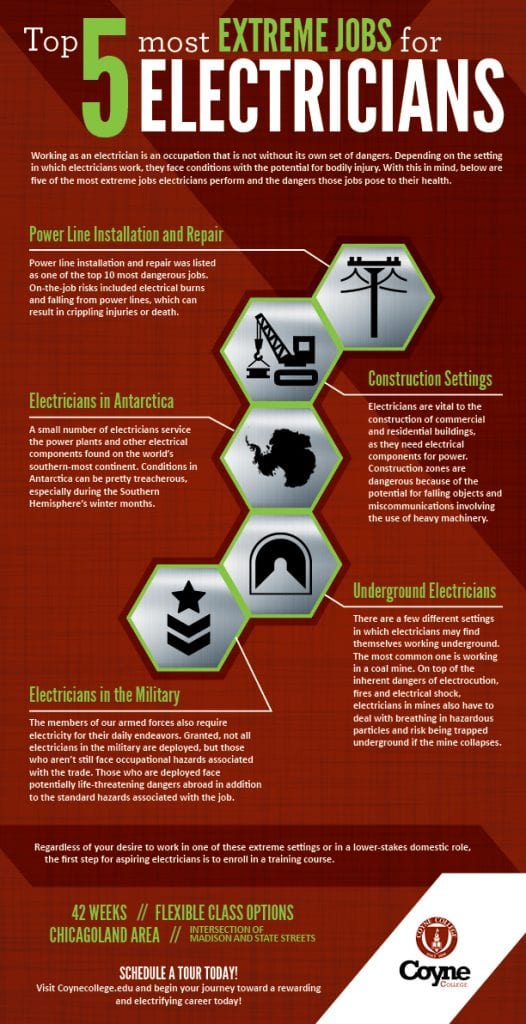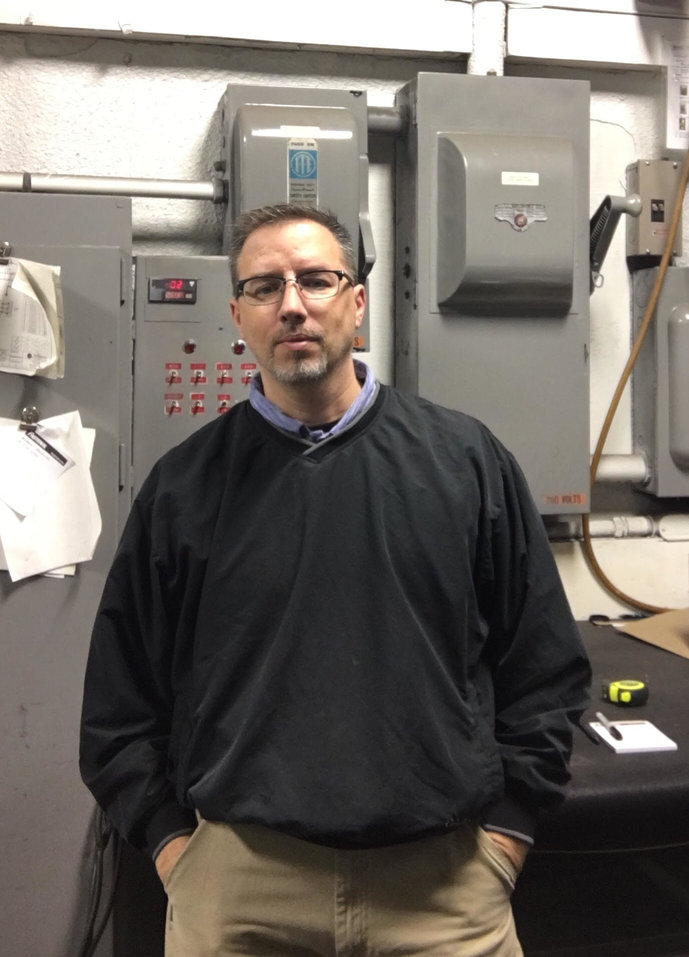
Ray Proskey was studying psychology at the University of Illinois at Chicago when he came across an ad in a newspaper for Coyne College’s Electrical Construction and Maintenance program. “I was attending UIC at the time and didn’t know what I was going to do with a degree in psychology,” Proskey says. “I would always mess around with things at home,” taking things apart and putting them back together. “I had a feeling electrical maintenance was a good career to be in.”
Not long after finding the ad, Proskey enrolled in Coyne College’s Electrical trade program and began his journey toward becoming an electrician. He attended class full-time for nine months at Coyne, which was then located on Fullerton Avenue in Chicago’s Lincoln Park neighborhood. He attributes much of his success in his career to the quality of instruction provided by Coyne’s faculty. “The instructors know what you’re supposed to learn,” Proskey says. “They were in the field. They had real-world experience. They didn’t just read a book.”
Another aspect of his education that he appreciated was the quality of the education for the value. “Teachers told us, ‘You’re going to learn the same concepts that electrical engineers will learn in college, but for a lower cost,’” Proskey says. One of his favorite classes was electrical construction. “Bending conduit and pulling wires, that was really neat,” he says.
In February 1996 he graduated with a full complement of skills necessary to succeed in the electrical industry. Proskey held a few different electrical jobs after graduating from Coyne before returning to school for a bachelor’s degree he needed to be eligible for managerial roles.
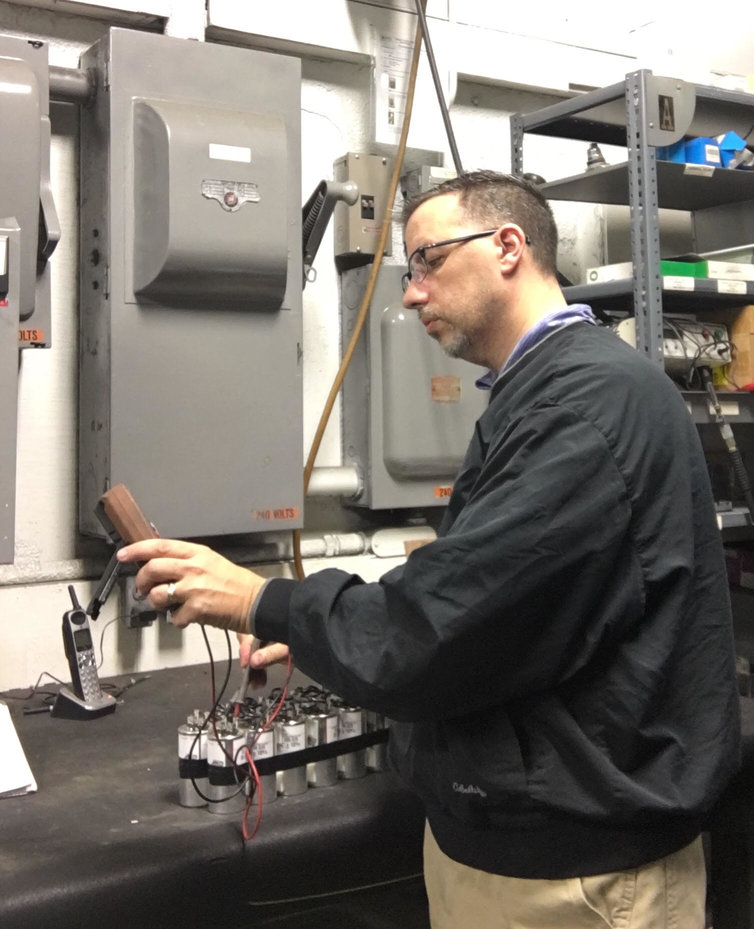
Ray currently works as a product manager for Kay Industries in Plymouth, Indiana, a company that makes phase converters. He oversees any changes that are made to the products and uses his electrical knowledge to make sure they run the way they are supposed to. He enjoys his current job because he’s not tied down to a desk and he’s constantly working on things and learning. He also likes having electrical knowledge. “If you have that knowledge, people look at you like you’re a step above,” Proskey says.
Working as an electrical tradesman also presents plentiful networking opportunities. “It allows you to get your foot in the door for other positions,” he says. “I currently supply equipment for machines that I have worked on in my previous jobs.” When he’s not working, he enjoys playing guitar, traveling the Midwest and spending time with his wife of 21 years and his two daughters at their home in Culver, Indiana. He also likes to paint from time to time.
Since being in school, learning is still a big part of Ray’s everyday life. “That’s 90 percent of the job,” he says of his current role, in which he uses the skills he learned at Coyne daily. “I had a good time there, made good friends,” Proskey says. “It’s paid off for me.” His advice to current and prospective students is to take the program seriously, pay attention and give it your best effort. “It’s like anything else where you get out what you put into it,” Proskey says. “Put the time in. If you want a good career, it’s out there.”
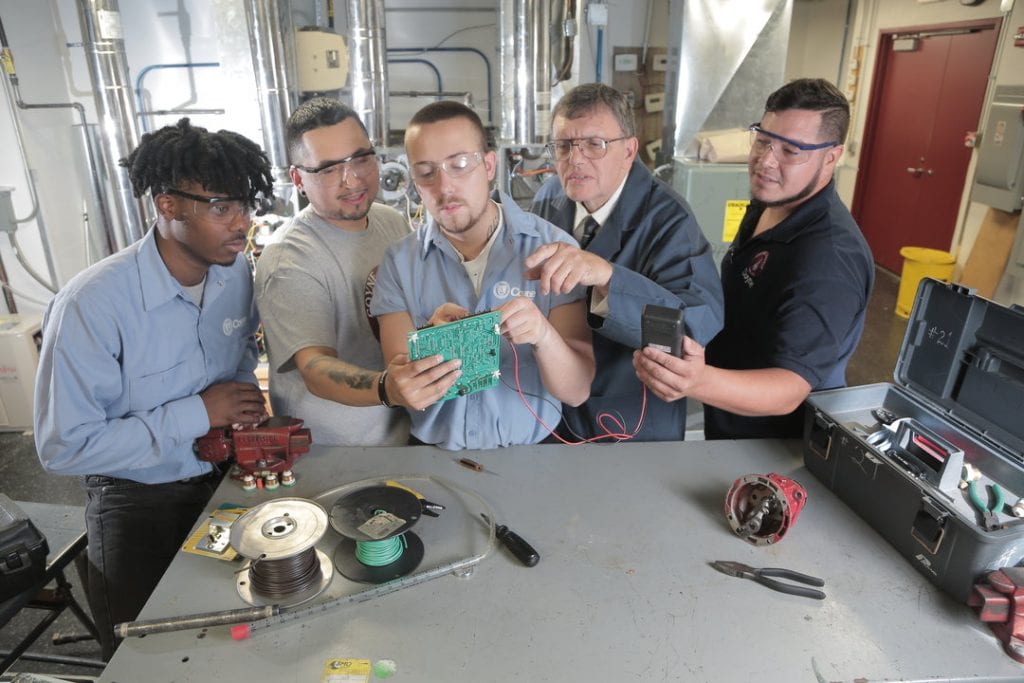
If you’re considering an in-demand career as a skilled electrical tradesperson, look no further than Coyne College’s electrical education programs. In the Electrical Construction and Maintenance program you can earn a diploma just like Ray did in as little as 42 weeks. Additionally, the Electrical Construction and Planning program awards you an associate’s degree in as little as 78 weeks. Both programs qualify you for entry-level work in an industry projected to see 9 percent growth through 2026, according to the Bureau of Labor Statistics. For more information or to speak with an admissions representative, log on to www.coynecollege.edu today.


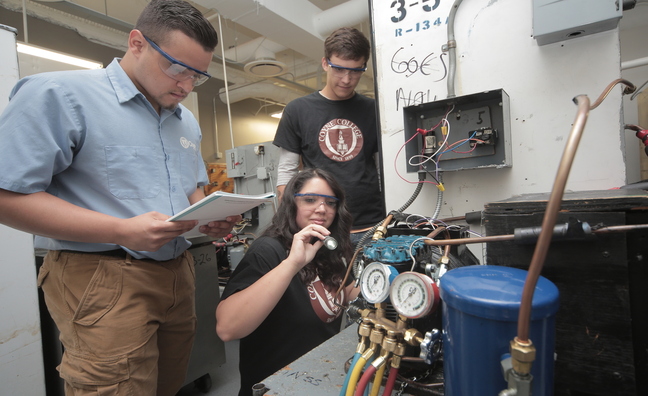

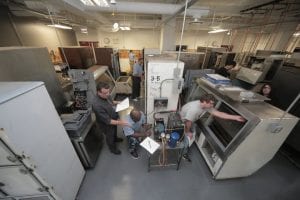 Coyne College is one of the premier trade schools in Chicago. Coyne is proud to maintain this status by thoroughly training aspiring HVAC-R technicians in its diploma program in the skilled trade.
Coyne College is one of the premier trade schools in Chicago. Coyne is proud to maintain this status by thoroughly training aspiring HVAC-R technicians in its diploma program in the skilled trade.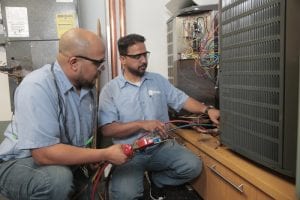 Over the course of the program, you will become well versed in the intricacies of HVAC-R by learning from experienced instructors who have significant experience in the field.
Over the course of the program, you will become well versed in the intricacies of HVAC-R by learning from experienced instructors who have significant experience in the field.
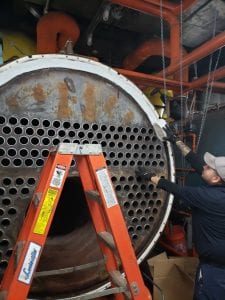 He did and graduated from Coyne College in August 2016. “I was very surprised I was able to get a job as soon as I graduated,” he says. Rosales works in the HVAC department at the Museum of Science and Industry. “A lot of the workers have been here so many years because it’s such a good position. It’s very rare to have any openings here.” He says one colleague, also a Coyne graduate, retired after 35 years. Another Coyne alum has worked at the museum for 20 years.
He did and graduated from Coyne College in August 2016. “I was very surprised I was able to get a job as soon as I graduated,” he says. Rosales works in the HVAC department at the Museum of Science and Industry. “A lot of the workers have been here so many years because it’s such a good position. It’s very rare to have any openings here.” He says one colleague, also a Coyne graduate, retired after 35 years. Another Coyne alum has worked at the museum for 20 years. Rosales is glad he veered away from business administration and toward HVAC. “When I was looking into the field, I saw nothing but great things,” he says. “By 2020, a lot of the units are going to be obsolete, and they’ll need to be replaced. So, in a few years, HVAC is going to be booming.” What he didn’t like about business management was that “everyone” was getting into it, and he expected it to be an oversaturated field.
Rosales is glad he veered away from business administration and toward HVAC. “When I was looking into the field, I saw nothing but great things,” he says. “By 2020, a lot of the units are going to be obsolete, and they’ll need to be replaced. So, in a few years, HVAC is going to be booming.” What he didn’t like about business management was that “everyone” was getting into it, and he expected it to be an oversaturated field.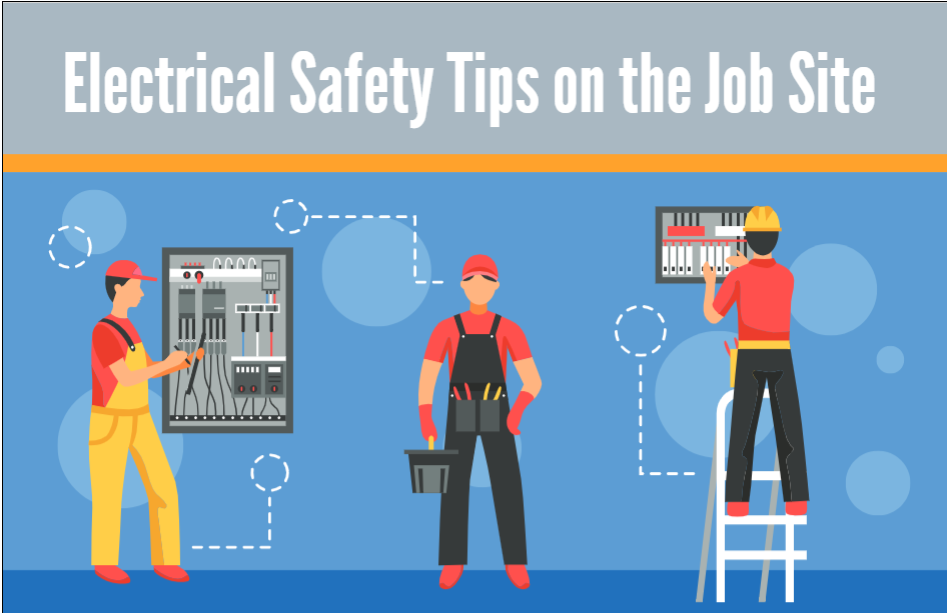

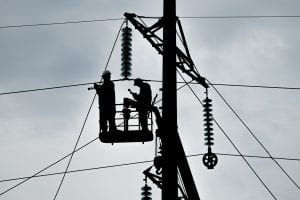 What if we didn’t have access to the electricity that most of us take for granted? Thanks in part to electrical linemen, we don’t have to, save for the occasional power outage due to stormy weather.
What if we didn’t have access to the electricity that most of us take for granted? Thanks in part to electrical linemen, we don’t have to, save for the occasional power outage due to stormy weather. 